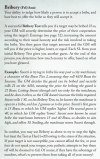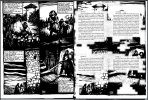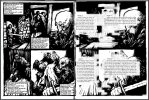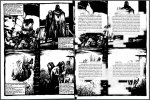- Joined
- Apr 24, 2017
- Messages
- 36,712
- Reaction score
- 109,357
A spin-off from the Outlaws of the Water Margin thread
Sleepyscholar of Shentian stated:
"Those who really want to know how the rules work, in my experience, will try to create a character in order to figure it out, and if I make the character generation more streamlined, as you suggest above, that should be possible, with reference to the Action chapter to fill in detail. I put character generation where it is, not so much from RPG tradition, but for this reason: for many people it's a 'route in' to the system."
My response was:
"I've put a lot of thought into how I learn RPGs, and I find that I do two things primarily before anything else - I take a look at the character sheet and I find the base task resolution mechanic. Then I look at combat, and from there go back and get into the nitty gritty. I couldn't in a thousand years say how universally applicable this approach is, but I do appreciate when a game puts a character sheet front and centre and it immediately gives me a visual indication of many parts of the rules."
As I stated, no idea how common my approach is, but it made me curious.
So how do you go about learning a system? Do you read a new rulebook cover to cover? Do you jump right into character creation? Do you jump around the rulebook to different sections, and if so - in what order?
And is there something RPGs could do - be it organization or otherwise, that would make them easier for you to learn the system?
Sleepyscholar of Shentian stated:
"Those who really want to know how the rules work, in my experience, will try to create a character in order to figure it out, and if I make the character generation more streamlined, as you suggest above, that should be possible, with reference to the Action chapter to fill in detail. I put character generation where it is, not so much from RPG tradition, but for this reason: for many people it's a 'route in' to the system."
My response was:
"I've put a lot of thought into how I learn RPGs, and I find that I do two things primarily before anything else - I take a look at the character sheet and I find the base task resolution mechanic. Then I look at combat, and from there go back and get into the nitty gritty. I couldn't in a thousand years say how universally applicable this approach is, but I do appreciate when a game puts a character sheet front and centre and it immediately gives me a visual indication of many parts of the rules."
As I stated, no idea how common my approach is, but it made me curious.
So how do you go about learning a system? Do you read a new rulebook cover to cover? Do you jump right into character creation? Do you jump around the rulebook to different sections, and if so - in what order?
And is there something RPGs could do - be it organization or otherwise, that would make them easier for you to learn the system?



 ."
." !
!







